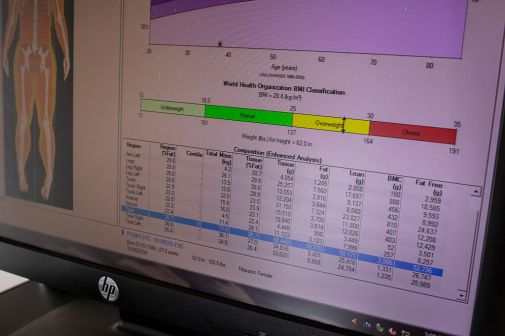Trump administration, tech leaders launch effort aimed at improving health records

The Trump administration on Wednesday announced an initiative to improve the digital health ecosystem for patients and providers, leaning on the voluntary support of dozens of health and tech companies.
More than 60 companies — including data networks, health systems and providers, and developers of AI and other applications — have committed to improving the flow of electronic health information, according to the Centers for Medicare and Medicaid Services. That group of adopters includes tech leaders such as Amazon, Anthropic, Apple, Google, and OpenAI.
The announcement comes after a May request for information that generated nearly 1,400 comments, which “were instrumental” in forming the initiative, according to CMS. It also appears to primarily be a collaborative effort between CMS and the Department of Government Efficiency.
In addition to CMS’s announcement, the White House held an event Wednesday with remarks from CMS Administrator Mehmet Oz, DOGE acting director Amy Gleason, President Donald Trump, and Department of Health and Human Services Secretary Robert F. Kennedy Jr.
In her remarks, which were also shared in a CMS video, Gleason spoke about her daughter’s experience navigating the health system as someone with a rare disease and the difficulty posed by transferring physical copies of her medical history from place to place.
“I truly believe that if one of those doctors had been able to see her whole history, they would have diagnosed her faster,” Gleason said. “And if we had just had today’s AI, then they could have connected the dots that the humans missed.”
Per the release, the administration’s effort is twofold: promoting CMS’s new Interoperability Framework — which outlines standards for patient and provider access to electronic medical information, as well as data availability and compliance — and increasing availability of patient tools that can be personalized.
CMS has plans to eventually add an app library to Medicare.gov to identify “trusted, personalized digital health tools focused on prevention, chronic disease management, and cost-effective care navigation,” the agency release said.
According to CMS, the commitments include 21 networks that will meet criteria of Interoperability Framework, 11 health systems or providers that will “support patient use,” and seven electronic health records providers that participate in an effort to “kill the clipboard” — or making intake records digital.
That policy notes that it is “not intended to create new regulatory burdens. Just alignment, execution, and momentum. Come one, come all.”
Immediately following the release of the plan, Andrew Crawford, a senior counsel at the Center for Democracy and Technology, said that improving the interoperability of health records can provide efficiency, but cautioned that health records are extremely sensitive and must be protected.
“The U.S. doesn’t have a general-purpose privacy law, and HIPAA only protects data held by certain people like healthcare providers and insurance companies,” Crawford said in a written statement. “Many health and AI apps, including some being promoted by the Trump Administration, are typically not covered by HIPAA. That could put sensitive information in real danger.”
Open data plan
Simultaneously on Wednesday, HHS announced efforts across the agency to make its own data more interoperable with the publication of its Open Data Plan and an updated version of healthdata.gov.
According to that announcement, the plan aligns with the OPEN Government Data Act, which was signed into law by Trump in 2019 and is being led by HHS’s Chief Data Officer Council. It’s aimed at eliminating data silos, supporting innovation, accelerating breakthroughs, and fueling public-private partnerships, among other things.
“Open Data will serve as the foundation for radical transparency, innovation, accountability, and public trust,” HHS CDO Kristen Honey said in a quote included in the release. “HHS Open Data is not just about numbers; it’s about empowering people, fostering trust, and driving real-world impact.”
Meanwhile, the update to the health data website has tripled the number of datasets available since January, according to a statement in the release from Deputy Secretary Jim O’Neill. Though, it’s worth noting that the administration has also eliminated certain data related to diversity, equity and inclusion in response to Trump’s directives.






